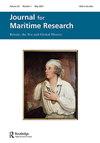酒馆、朗姆酒店和小酒馆:酒精如何推动西印度群岛的非正式商业网络和知识交流
Q3 Arts and Humanities
引用次数: 0
摘要
虽然历史学家们最近一直在研究酒馆和酒精消费在现代早期社会中所扮演的重要角色,但很少有人关注那些更邪恶或可疑的消费者,比如海盗和私掠者。酒馆和酒馆之类的设施可以为海盗提供必要的茶点,在冒险之间提供住宿,以及关于加勒比海-大西洋航运活动的重要信息。但这些男人(有时是女人)的赞助也为当地经济注入了物种、商品,有时甚至是抵御外国入侵的安全。通过研究法律记录、考古遗迹以及进出加勒比-大西洋各个岛屿的现金和商品流动,本文假设了海盗和酒精在整个近代早期西印度群岛形成非正式商业网络和知识流动中的重要性。本文章由计算机程序翻译,如有差异,请以英文原文为准。
Tippling houses, rum shops and taverns: how alcohol fuelled informal commercial networks and knowledge exchange in the West Indies
ABSTRACT Although historians have recently considered the important role that taverns and the consumption of alcohol played in the early modern world, less attention has been focused on more nefarious or dubious consumers such as pirates and privateers. Establishments such as taverns and tippling houses could provide pirates with necessary refreshment, lodging between ventures, and vital information on shipping activities in the Caribbean–Atlantic. But the patronage of these men–and sometimes women–also infused the local economy with specie, commodities, and sometimes even security against foreign incursions. By examining the legal record, archaeological remains, and the flow of cash and commodities in and out of various Caribbean–Atlantic islands, this article posits the importance of piracy and alcohol in the formation of informal commercial networks and the flow of knowledge throughout the early modern West Indies.
求助全文
通过发布文献求助,成功后即可免费获取论文全文。
去求助
来源期刊

Journal for Maritime Research
Arts and Humanities-History
自引率
0.00%
发文量
0
期刊介绍:
The Journal for Maritime Research ( JMR ), established by the National Maritime Museum in 1999, focuses on historical enquiry at the intersections of maritime, British and global history. It champions a wide spectrum of innovative research on the maritime past. While the Journal has a particular focus on the British experience, it positions this within broad oceanic and international contexts, encouraging comparative perspectives and interdisciplinary approaches. The journal publishes research essays and reviews around 15-20 new books each year across a broad spectrum of maritime history. All research articles published in this journal undergo rigorous peer review, involving initial editor screening and independent assessment, normally by two anonymous referees.
 求助内容:
求助内容: 应助结果提醒方式:
应助结果提醒方式:


